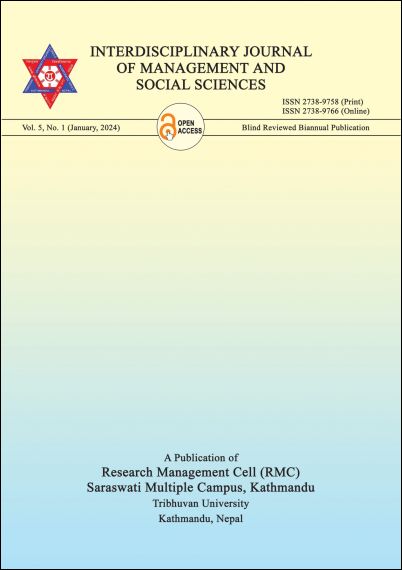Transgenerational Burden in W. B. Yeats’s Poem “Leda and the Swan”: A Feminist Study
DOI:
https://doi.org/10.3126/ijmss.v5i1.62658Keywords:
Patriarchal power, subordination, feminism, trauma, transgenerational burden, divisionAbstract
The transgenerational burden presented in W. B. Yeats' poem "Leda and the Swan" is examined in this research from a feminist standpoint. As shown in the legendary retelling, the analysis explores the many layers of patriarchal power relations and their long-lasting effects on succeeding generations. The text uses feminist literary theory to explain how Yeats's depiction of Leda's terrible encounter with the holy swan incorporates larger societal meanings and sustains repressive mechanisms that have an ongoing effect on society. The transgenerational burden arises from the offspring of this encounter. The children born to Leda carry the weight of their divine parentage and the complexities of their intertwined lineage. The examination scrutinizes the interplay of gender roles, agency, and the consequential burdens borne by women, revealing the poem as a nuanced commentary on the enduring legacy of patriarchal dominance. Through this exploration, the study contributes to the broader discourse on gender in literature, shedding light on the intricate intergenerational complexities inherent in Yeats's poetic explanation. The Leda and the Swan myth highlights the enduring consequences of patriarchal power dynamics and their role in shaping transgenerational burdens within the narrative.
Downloads
Downloads
Published
How to Cite
Issue
Section
License

This work is licensed under a Creative Commons Attribution-NonCommercial 4.0 International License.

